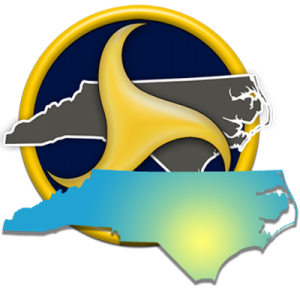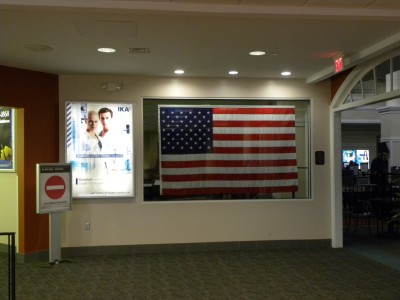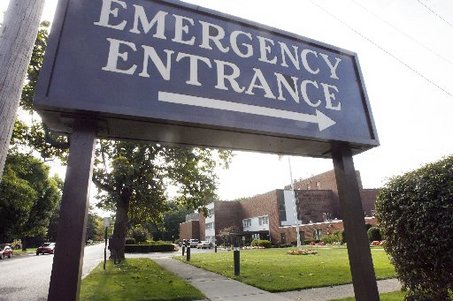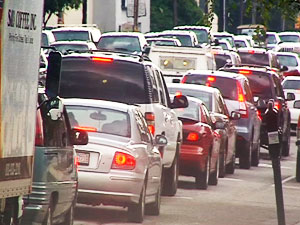DOT & Dangerous Roads Injuries
Thursday, April 19th, 2018 The North Carolina Department of Transportation (NCDOT) is one of the state’s largest agencies and its responsibilities include building, repairing, and operating all kinds of transportation within the state of North Carolina – i.e. highways, railroads, aviation, ferries, public transit, bike paths, and pedestrian walkways.
The North Carolina Department of Transportation (NCDOT) is one of the state’s largest agencies and its responsibilities include building, repairing, and operating all kinds of transportation within the state of North Carolina – i.e. highways, railroads, aviation, ferries, public transit, bike paths, and pedestrian walkways.
The department is led by the secretary of transportation who is a member of the governor’s cabinet.
N.C.G.S. § 143B-346 defines the purpose and functions of the NC DOT as follows:
The general purpose of the Department of Transportation is to provide for the necessary planning, construction, maintenance, and operation of an integrated statewide transportation system for the economical and safe transportation of people and goods as provided for by law. The Department shall also provide and maintain an accurate register of transportation vehicles as provided by statutes, and the Department shall enforce the laws of this State relating to transportation safety assigned to the Department. The Department of Transportation shall be responsible for all of the transportation functions of the executive branch of the State as provided by law except those functions delegated to the Utilities Commission and the Commissioners of Navigation and Pilotage as provided for by Chapter 76. The major transportation functions include aeronautics, highways, mass transportation, motor vehicles, and transportation safety as provided for by State law. The Department of Transportation shall succeed to all functions vested in the Board of Transportation and the Department of Motor Vehicles on July 1, 1977.
While the state and local governments are generally protected from all kinds of lawsuits based on both sovereign and governmental immunity which derived from the English concept that the “king can do no wrong,” the state has waived its immunity against tort claims as provided by N.C.G.S. § 143-291, which reads as follows:
(a) The North Carolina Industrial Commission is hereby constituted a court for the purpose of hearing and passing upon tort claims against the State Board of Education, the Board of Transportation, and all other departments, institutions and agencies of the State. The Industrial Commission shall determine whether or not each individual claim arose as a result of the negligence of any officer, employee, involuntary servant or agent of the State while acting within the scope of his office, employment, service, agency or authority, under circumstances where the State of North Carolina, if a private person, would be liable to the claimant in accordance with the laws of North Carolina. If the Commission finds that there was negligence on the part of an officer, employee, involuntary servant or agent of the State while acting within the scope of his office, employment, service, agency or authority that was the proximate cause of the injury and that there was no contributory negligence on the part of the claimant or the person in whose behalf the claim is asserted, the Commission shall determine the amount of damages that the claimant is entitled to be paid, including medical and other expenses, and by appropriate order direct the payment of damages as provided in subsection (a1) of this section, but in no event shall the amount of damages awarded exceed the amounts authorized in G.S. 143-299.2 cumulatively to all claimants on account of injury and damage to any one person arising out of a single occurrence. Community colleges and technical colleges shall be deemed State agencies for purposes of this Article. The fact that a claim may be brought under more than one Article under this Chapter shall not increase the foregoing maximum liability of the State.
(a1) The unit of State government that employed the employee at the time the cause of action arose shall pay the first one hundred fifty thousand dollars ($150,000) of liability, and the balance of any payment owed shall be paid in accordance with G.S. 143-299.4.
(b) If a State agency, otherwise authorized to purchase insurance, purchases a policy of commercial liability insurance providing coverage in an amount at least equal to the limits of the State Tort Claims Act, such insurance coverage shall be in lieu of the State’s obligation for payment under this Article.
(c) The North Carolina High School Athletic Association, Inc., is a State agency for purposes of this Article, and its liability in tort shall be only under this Article. This subsection does not extend to any independent contractor of the Association. The Association shall be obligated for payments under this Article, through the purchase of commercial insurance or otherwise, in lieu of any responsibility of the State or The University of North Carolina for this payment. The Association shall be similarly obligated to reimburse or have reimbursed the Department of Justice for any expenses in defending any claim against the Association under this Article.
(d) Liability in tort of the State Health Plan for Teachers and State Employees for noncertifications as defined under G.S. 58-50-61 shall be only under this Article.
The Industrial Commission has exclusive, original jurisdiction over claims covered by the Tort Claims Act. Payments by the state under the Tort Claims Act are limited to one million dollars ($1,000,000.00) as provided by N.C.G.S. § 143-299.2:
(a) The maximum amount that the State may pay cumulatively to all claimants on account of injury and damage to any one person arising out of any one occurrence, whether the NC General Statutes – Chapter 143 Article 31 7 claim or claims are brought under this Article, or Article 31A or Article 31B of this Chapter, shall be one million dollars ($1,000,000), less any commercial liability insurance purchased by the State and applicable to the claim or claims under G.S. 143-291(b), 143-300.6(c), or 143-300.16(c).
(b) The fact that a claim or claims may be brought under more than one Article under this Chapter shall not increase the above maximum liability of the State.
Collins Law Firm along with H. Mitchell Baker, III, have experience in bringing action under the Tort Claims Act based on the NCDOT’s failure to have adequate signage or warnings in place to notify and warn motorists of upcoming intersections, or based on the NC DOT’s breach of its duty to keep the public streets open for travel and free from unnecessary obstructions.
If you or someone you know and care about has been injured due to negligence by NCDOT, please call Collins Law Firm at 910-793-9000 for a free confidential consultation.
By Jana H. Collins


 Since 1935, in North Carolina, there has been a statutory lien upon sums of money recovered as damages for personal injury claims. “This lien is in favor of any person, corporation, State entity, municipal corporation or county to whom the person so recovering, or the person in whose behalf the recovery has been made, may be indebted for any drugs, medical supplies, ambulance services, services rendered by any physician, dentist, nurse, or hospital, or hospital attention or services rendered in connection with the injury in compensation for which the damages have been recovered. Where damages are recovered for and in behalf of minors or persons non compos mentis, the liens shall attach to the sum recovered as fully as if the person were sui juris.” . N.C.G.S § 44-49.
Since 1935, in North Carolina, there has been a statutory lien upon sums of money recovered as damages for personal injury claims. “This lien is in favor of any person, corporation, State entity, municipal corporation or county to whom the person so recovering, or the person in whose behalf the recovery has been made, may be indebted for any drugs, medical supplies, ambulance services, services rendered by any physician, dentist, nurse, or hospital, or hospital attention or services rendered in connection with the injury in compensation for which the damages have been recovered. Where damages are recovered for and in behalf of minors or persons non compos mentis, the liens shall attach to the sum recovered as fully as if the person were sui juris.” . N.C.G.S § 44-49.
 If you are involved in a car crash or automobile accident through no fault of your own, and you are injured, it is critical that you seek medical attention immediately. If emergency medical services are called to the scene, they can help you determine whether or not you need to be transported by an ambulance or if it would be safe for you to seek alternative transportation to the hospital. Many times, people can sustain injuries which are not immediately apparent and for which the symptoms may not occur until a later time. All reasonably necessary medical expenses for injuries caused by the accident should be covered by the insurance carrier for the person who caused the accident. In addition to paying for medical expenses, they can pay for any other expenses caused by the accident and for pain and suffering for injuries caused by the accident.
If you are involved in a car crash or automobile accident through no fault of your own, and you are injured, it is critical that you seek medical attention immediately. If emergency medical services are called to the scene, they can help you determine whether or not you need to be transported by an ambulance or if it would be safe for you to seek alternative transportation to the hospital. Many times, people can sustain injuries which are not immediately apparent and for which the symptoms may not occur until a later time. All reasonably necessary medical expenses for injuries caused by the accident should be covered by the insurance carrier for the person who caused the accident. In addition to paying for medical expenses, they can pay for any other expenses caused by the accident and for pain and suffering for injuries caused by the accident.